Britain is facing a chronic backlog in many public services. This includes record NHS waiting lists, a shortage of housing, delays in the criminal system, and a surge in unprocessed asylum requests.
On top of this, there is a cost of living crisis, falling real wages and the highest level of strikes this century. It seems a nation under strain, with public services, especially struggling to meet demand
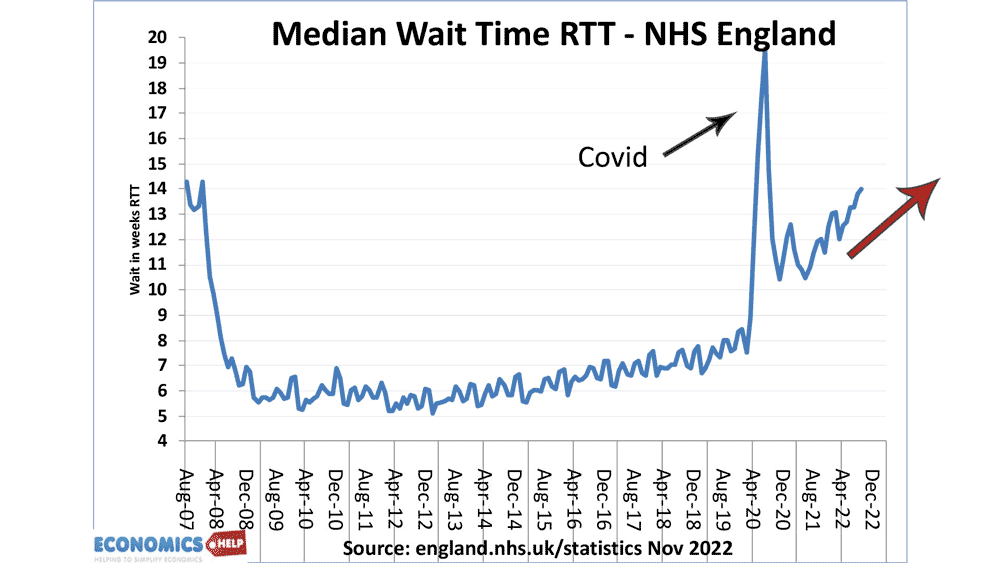
The NHS now faces waitings list of over 7 million, an all time record with a significant proportion waiting over 52 weeks.
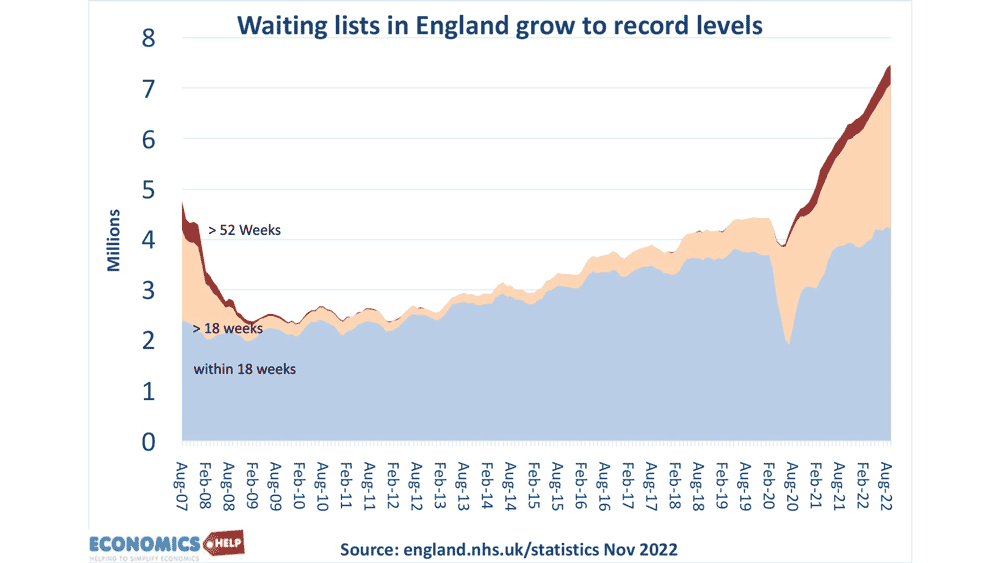
This is exemplified by a fall in the % who are able to receive timely treatment after being diagnosed with cancer.
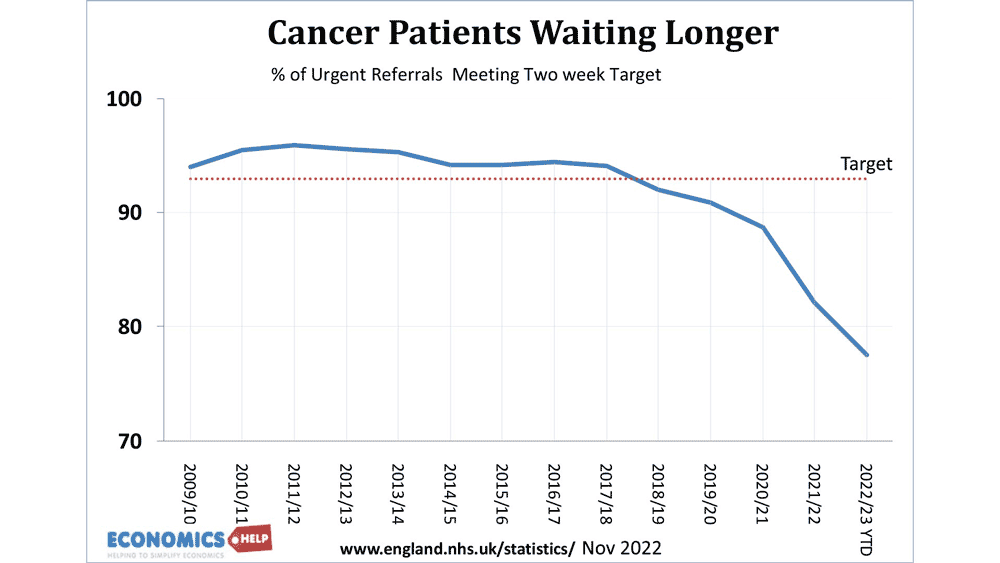
And it encompasses many other areas of health care from A&E to mental health.
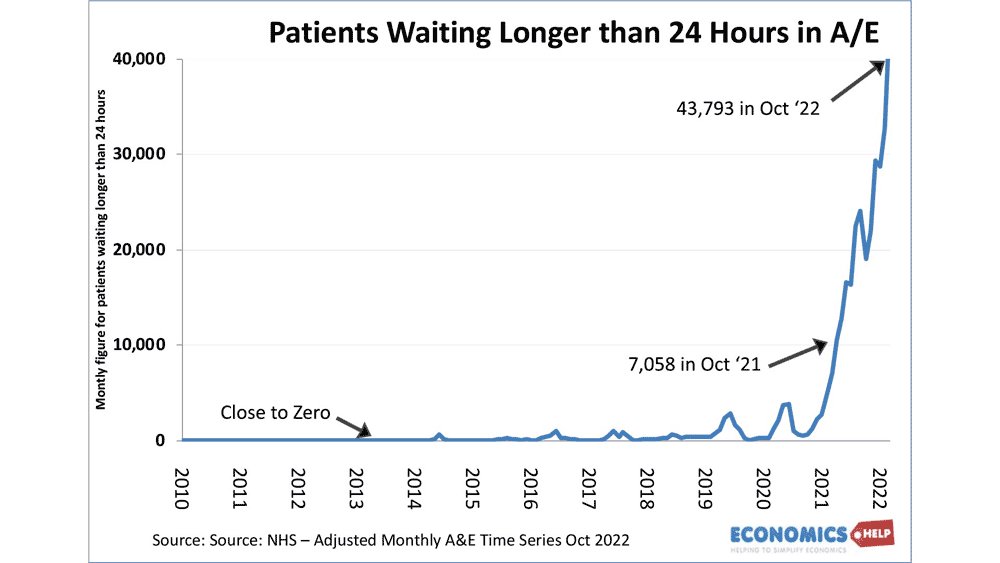
The Covid pandemic was undoubtedly a tipping point for many public services, especially in the NHS. But, it is a crisis many years in the making, with public services being run at stretching point for many years. The problem is that when everything is cut to the bare bones, a crisis like Covid means there is no capacity to deal with unexpected pressures.
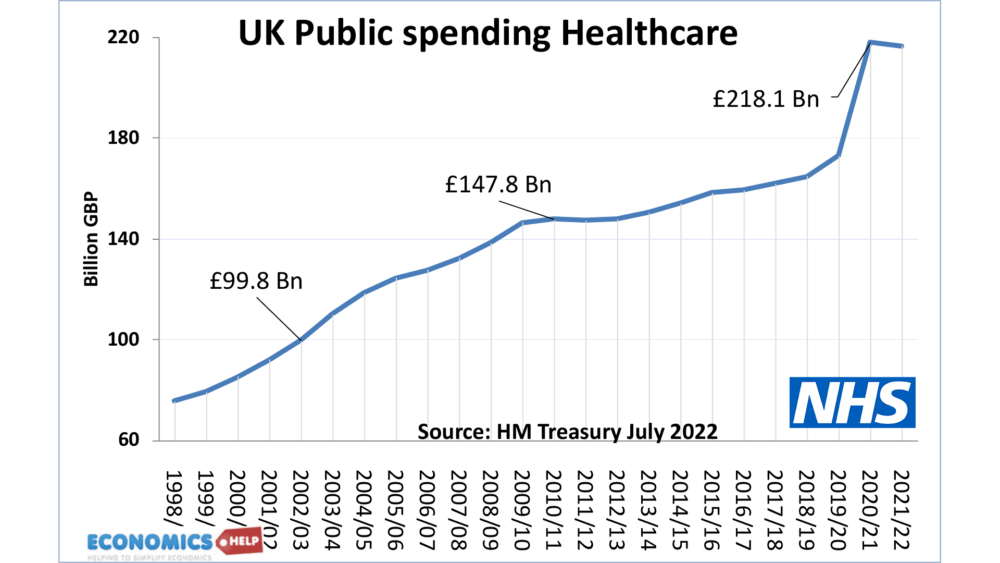
The NHS never actually experienced a fall in real spending. Its budget was protected against the worst of the austerity. However, increasing health care spending slightly higher than inflation is insufficient because of an ageing population, and also rise in many conditions, such as cancer, autoimmune disease and diabetes. Also as a share of GDP, spending on health care declined from 2009 until the Covid surge.
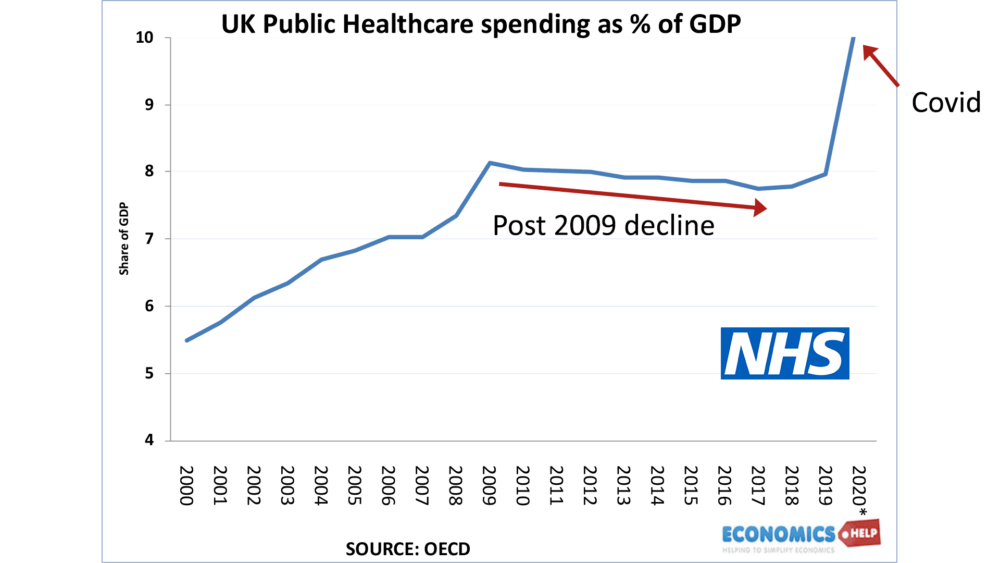
This combination of ever-increasing demand, the impact of covid and long-covid, mean the system has been unable to keep up. And the concern is that for the foreseeable future, things may get worse.
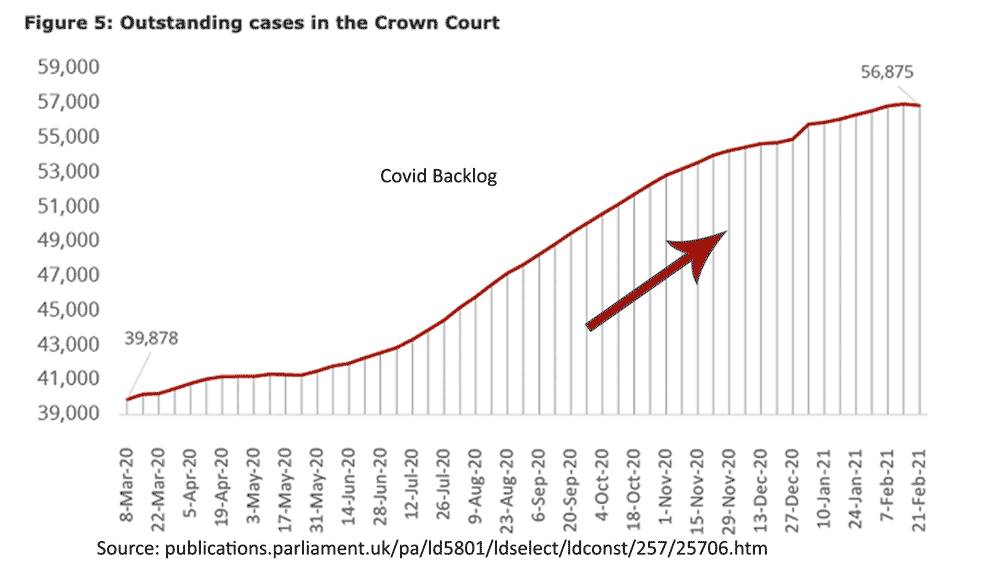
It is a similar story with the criminal justice system. Covid caused havoc creating a backlog of cases The number of open cases more than doubled from 31,000 in 2019 to over 60,000 in a few days. The problem is the end of Covid lockdowns has not brought the backlog down, but if anything has worsened. Research suggests the problem is going to get worse in the near future. Even if the court capacity is increased with extra funding, it will still take a long-time for cases to come down.
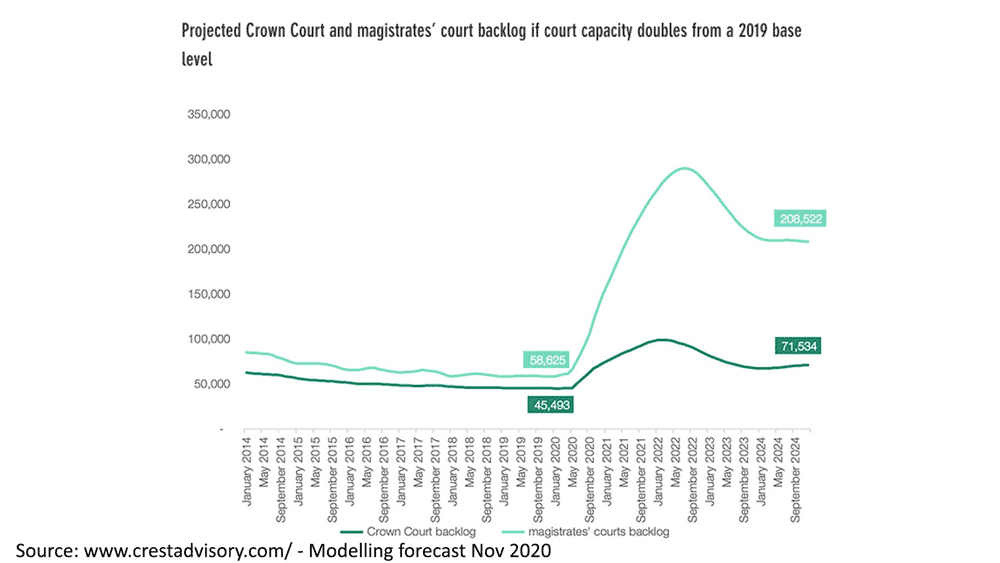
But, also there is issue of do crimes ever get to prosecution in the first place? Many police forces are overstretched and minor crimes go uninvestigated because of shortage of funds. Just 4% of theft in England and Wales ever resulted in prosecution.
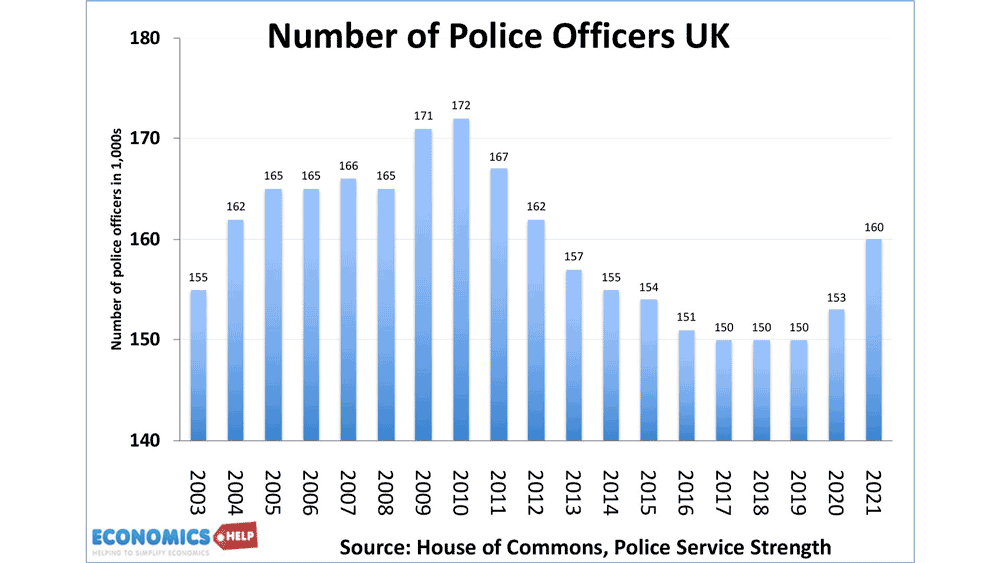
The austerity of 2010-15 was particularly focused on areas like education, public investment and home affairs. For example, there was a cut in the number of police officers and public sector investment fell to low levels, contributing to the UK has very low levels of investment by international standards.
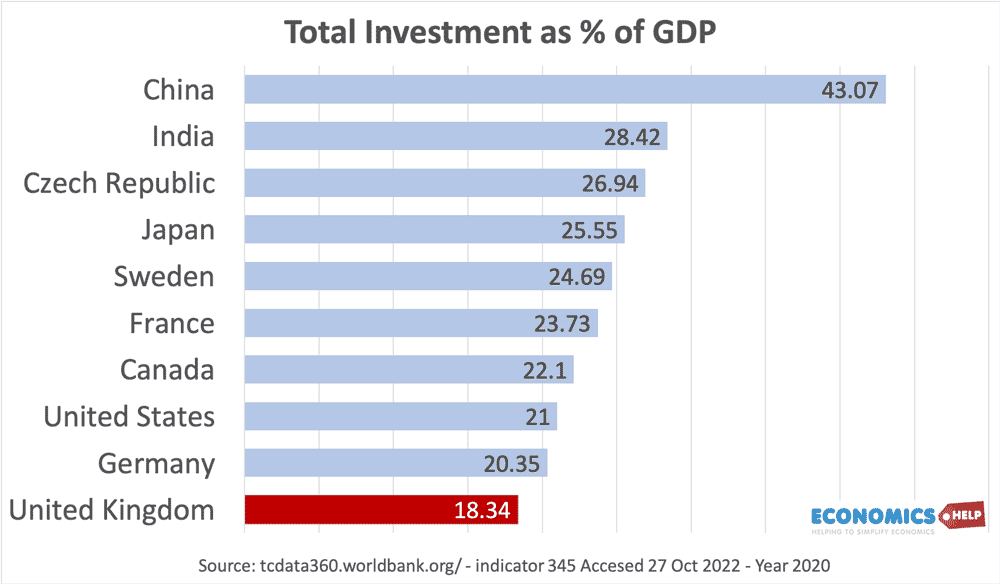
Why Problem?
At this point, a good question to ask is how come public services are so underfunded, given taxes are rising to their highest share of GDP for many years?
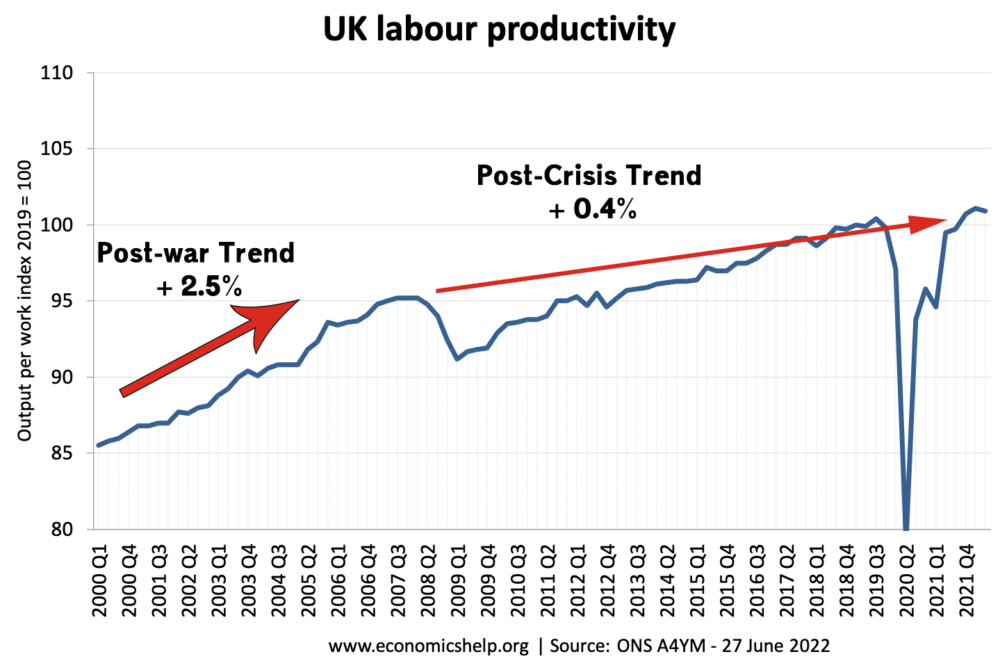
The problem is since the financial crisis of 2008, UK growth has slowed down quite remarkably. Before the crisis growth was averaging 2.5%, it is now only 1-1.4%. The problem relates to the slowdown in productivity (output per worker). This is a global phenomenon but has hit the UK harder than elsewhere.
Therefore, as growth slows down, the expected rise in tax revenues has not materialised. In the past, we could rely on growth to enable higher spending. Now, we are needing to increase tax rates to try and meet the shortfall.
And unfortunately, the outlook for the UK economy is pretty grim, both Bank of England and OBR, have predicted quite a prolonged recession. Again, there are global factors With the Ukraine war pushing up gas and oil prices, The UK is not unique in facing an economic slowdown, but next year the UK is predicted to be one of the worst-performing economies in the OECD.
One reason for poor productivity is declining health. With a large section of the older workforce taking leaving the labour market. This is a combination of people taking early retirement and a rise in long-term sickness – often long covid.
I would say that it’s not just about money. The cure for chronic fatigue isn’t necessarily very expensive drugs. It’s better to prevent heart disease than expensive cures. But, that’s another story.
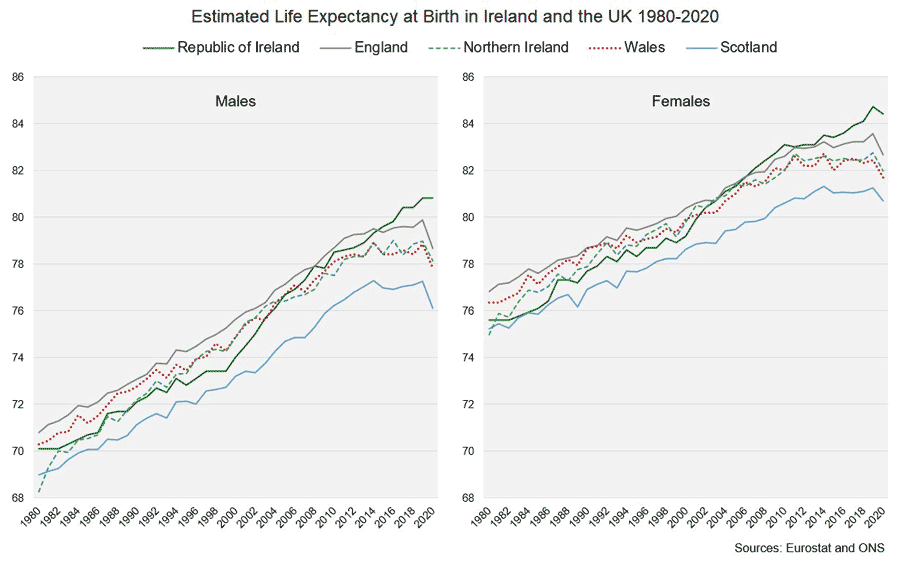
However, a real concern is that we are now seeing falls in life expectancy for the first time in over a century. This is not just Covid but other factors, such as rising heart disease, and obesity. It is also striking to look at regional life expectancy which is showing a sharp north-south divide.
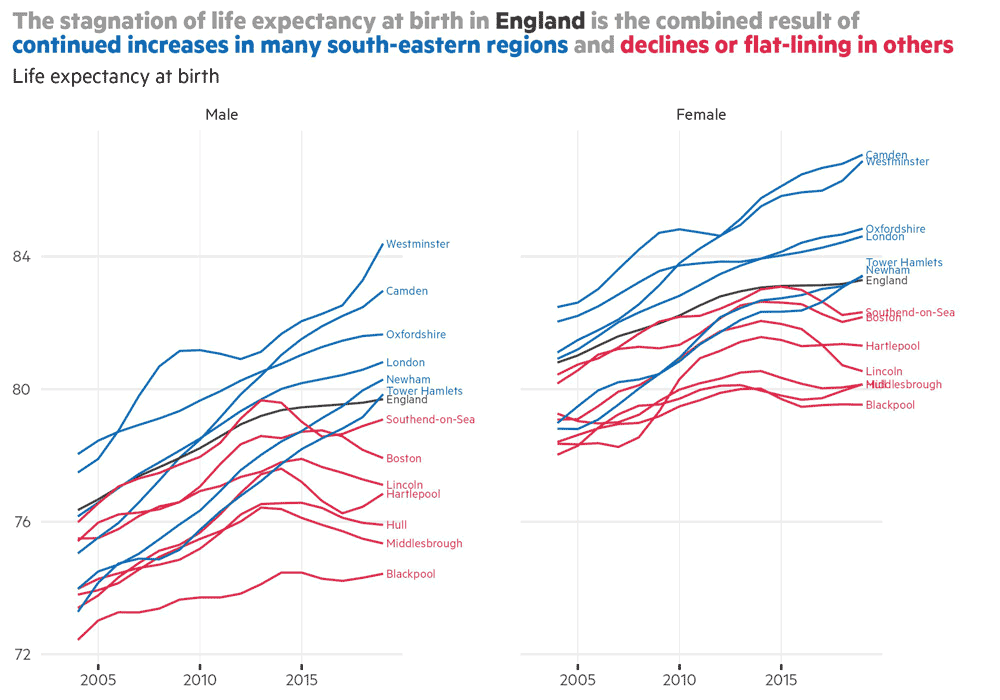
Another serious backlog is occurring in asylum applications. We can say a surge in asylum applications, is partly caused by a rise in boat crossing, but it is also important to say, this is not just a lack of funding. Funding has increased, but the system isn’t working very well.
Brexit
Those who are critical of Brexit may point to the backlog and waiting lists as proof of Brexit’s failure. I’m not so convinced because the real cause is this long-term underfunding and productivity problems. which goes back to 2010, if not early. However, whilst Brexit may only have been a very minor cause of the current crisis, I do think it will make it harder to solve it. The OBR predict a 4% loss of GDP due to Brexit because of trade frictions, lower investment e.t.c. And all the evidence so far, suggests this is a very reasonable prediction. Given low growth and strain on public finances, the Brexit cost of 4% GDP is something the country can’t really afford.
Housing
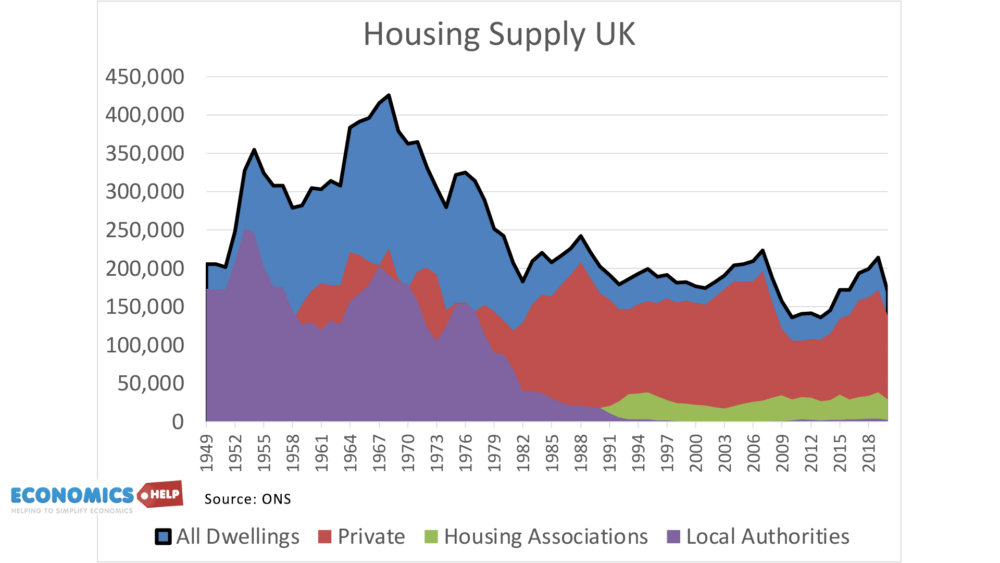
Another consequence of short-termism and underfunding is in the housing market. In the 1980s, we started to sell off council homes, which was popular in the short-term but has contributed to a shortage of social housing, leading to record waiting lists. It’s actually hard to get on the waiting list in the first place. This shortage has also caused a rise in demand for private renting and a surge in rents.
Immigration
Another contentious issue with regard to waiting list is that of immigration. When you have to wait 52 weeks to see the doctor, doesn’t allowing more people only worsen the problem? Here it is a mistake to blame immigration because net migration tends to have a higher than usual share of working-age people, who are net contributors to government finances. Pay more taxes than receive in benefits and health care. Also, migrants are a crucial part of the NHS, with an estimated 50% of NHS workers being foreign-born. If we cut immigration, it would lead to lower growth and falling tax revenues. Immigration does exacerbate the housing crisis, but from the government’s point of view improves tax revenue.
More money
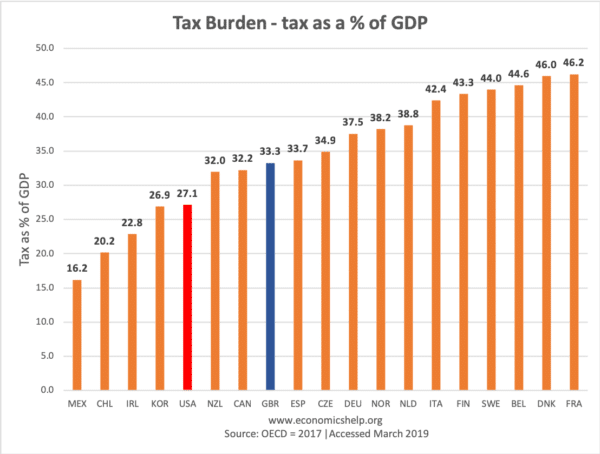
Many of the problems are not just due to lack of money. But, it may be the realisation that if we want a functioning welfare state, we may need to accept European-style tax levels. Otherwise, we are looking at part-privatisation.
Further reading
